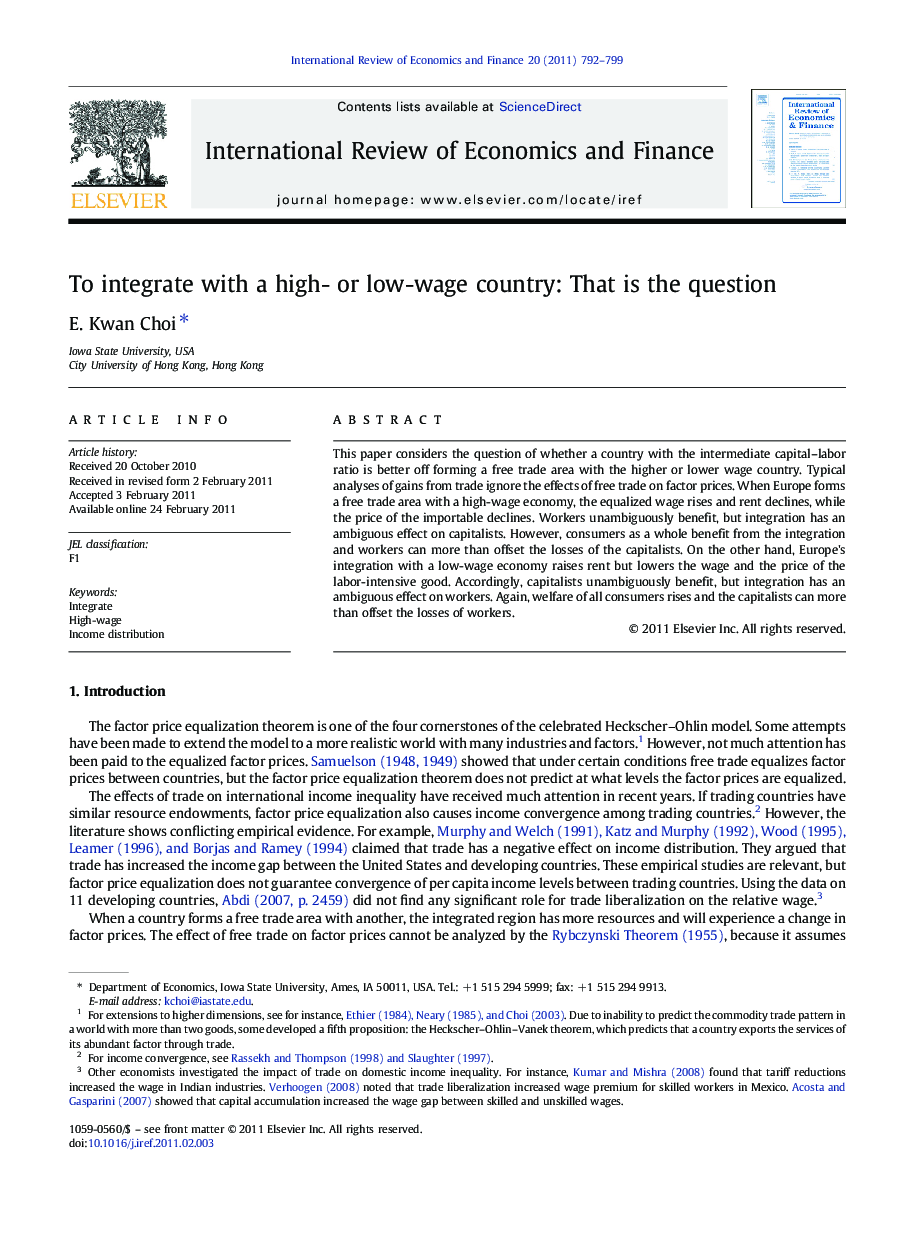| Article ID | Journal | Published Year | Pages | File Type |
|---|---|---|---|---|
| 5083826 | International Review of Economics & Finance | 2011 | 8 Pages |
Abstract
This paper considers the question of whether a country with the intermediate capital-labor ratio is better off forming a free trade area with the higher or lower wage country. Typical analyses of gains from trade ignore the effects of free trade on factor prices. When Europe forms a free trade area with a high-wage economy, the equalized wage rises and rent declines, while the price of the importable declines. Workers unambiguously benefit, but integration has an ambiguous effect on capitalists. However, consumers as a whole benefit from the integration and workers can more than offset the losses of the capitalists. On the other hand, Europe's integration with a low-wage economy raises rent but lowers the wage and the price of the labor-intensive good. Accordingly, capitalists unambiguously benefit, but integration has an ambiguous effect on workers. Again, welfare of all consumers rises and the capitalists can more than offset the losses of workers.
Keywords
Related Topics
Social Sciences and Humanities
Economics, Econometrics and Finance
Economics and Econometrics
Authors
E. Kwan Choi,
